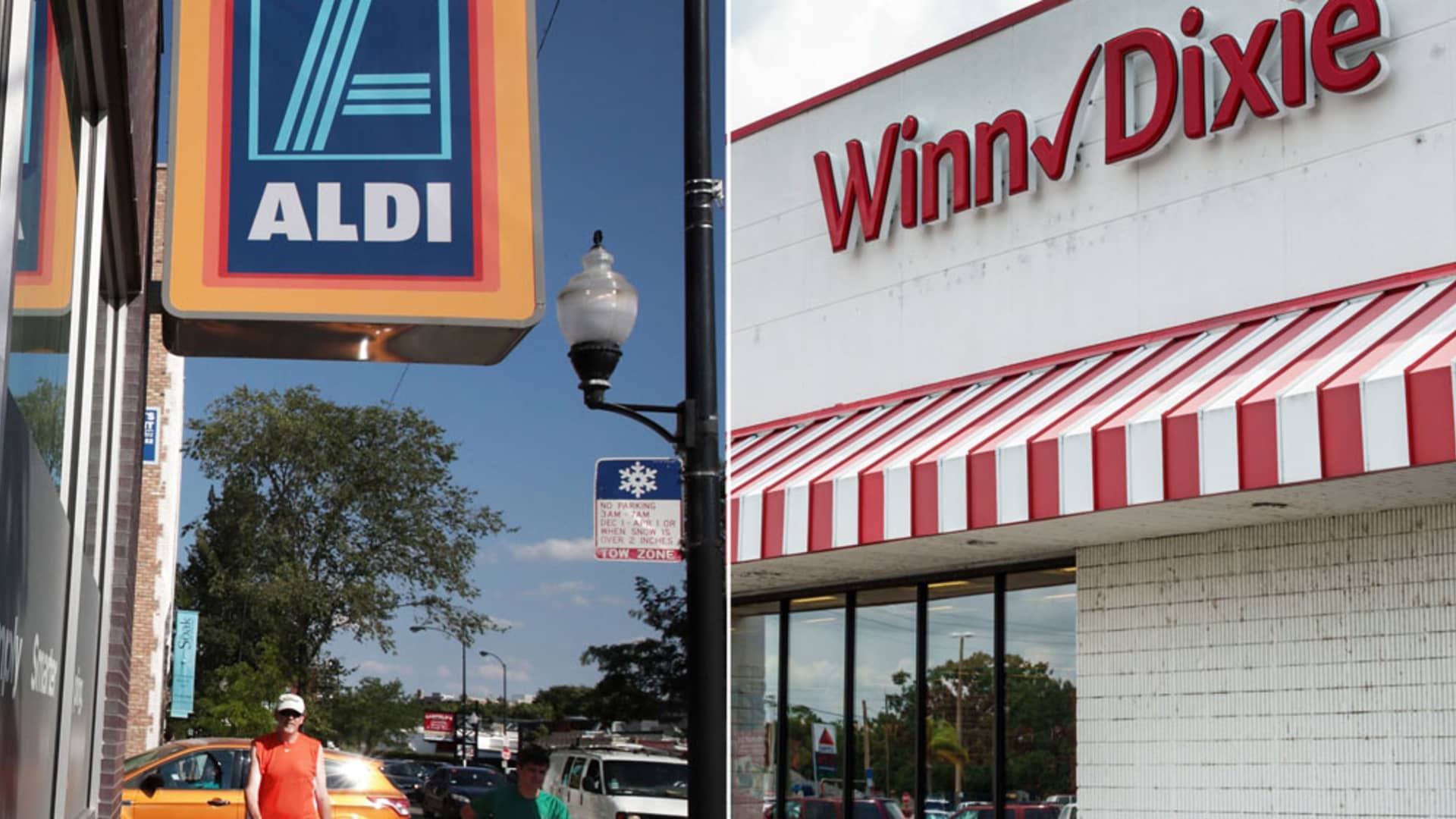Aldi, the no-frills discounter, is making waves in the grocery industry with its latest big moves. The German retailer has announced plans to acquire approximately 400 Winn-Dixie and Harveys Supermarket locations in the Southern United States. The deal includes taking over the operations of these stores, which are located in Florida, Alabama, Georgia, Louisiana, and Mississippi, and rebranding them as Aldi stores. The transaction is expected to be finalized in the first half of next year.
Aldi has already been expanding aggressively throughout the country, with over 2,300 stores in 38 states. In addition to the acquisition, the company is on track to open 120 new stores by the end of this year.
This acquisition comes at a time when other major players in the industry are also making significant moves. Kroger’s $24.6 billion acquisition of Albertsons is pending, and companies like Amazon and Target are also vying for a larger share of the grocery market. As consumers become more conscious of inflation, they continue to purchase food and essentials but are cutting back on other non-essential items like clothing and electronics.
Aldi, like Trader Joe’s and its Germany-based competitor Lidl, relies heavily on its own brands, with around 90% of its products being private labels. This strategy allows Aldi to achieve greater scale and lower costs in areas such as marketing and the supply chain. Additionally, Aldi employs creative cost-cutting measures, such as reducing packaging sizes and using electronic shelf labels.
However, as inflation subsides, Aldi may face new challenges if shoppers revert to their old habits of shopping at higher-priced neighborhood grocery stores or opting for favorite name-brand products. Aldi has also been working to keep up with its competitors’ online offerings, expanding its curbside pickup service to more stores.
Financial details of the acquisition have not been disclosed by the privately held company. Nevertheless, the deal has significant implications for publicly traded competitors like Walmart and Kroger, as well as regional grocers.
In an interview with CNBC, Jason Hart, the CEO of Aldi U.S., discussed the rationale behind the acquisition and how the company fits into the evolving grocery landscape. He emphasized the speed to market and the opportunity to meet consumer demand that this acquisition provides. Aldi plans to convert a significant number of the acquired stores to its own format and continue operating others as Winn-Dixie and Harveys Supermarket.
Regarding future synergies between Aldi and the acquired stores, Hart mentioned the possibility of sharing consumer insights, product ideas, and merchandising ideas but did not provide any definitive plans.
When asked about Aldi’s unique offerings compared to competitors like Walmart, Kroger, and Dollar General, Hart highlighted Aldi’s limited number of stock keeping units (SKUs), which allows for higher volume per SKU and more efficient operations. Aldi aims to simplify the shopping experience by offering great quality and great prices.
Hart attributes the current wave of big moves in the grocery industry to changing consumer shopping habits and the increased focus on value. Consumers are willing to explore different ways to fulfill their grocery needs, including e-commerce and discounters like Aldi. These changes in consumer behavior have reshaped the industry.
Finally, Hart discussed the trends in online and in-store sales following the pandemic. He noted that Aldi is now experiencing equal growth in both channels, but he anticipates that e-commerce will continue to grow slightly more in the future.
In conclusion, Aldi’s acquisition of Winn-Dixie and Harveys Supermarket represents a significant step in its expansion plans. The company aims to meet the growing consumer demand and further disrupt the grocery industry with its focus on quality and value.
Denial of responsibility! VigourTimes is an automatic aggregator of Global media. In each content, the hyperlink to the primary source is specified. All trademarks belong to their rightful owners, and all materials to their authors. For any complaint, please reach us at – [email protected]. We will take necessary action within 24 hours.


